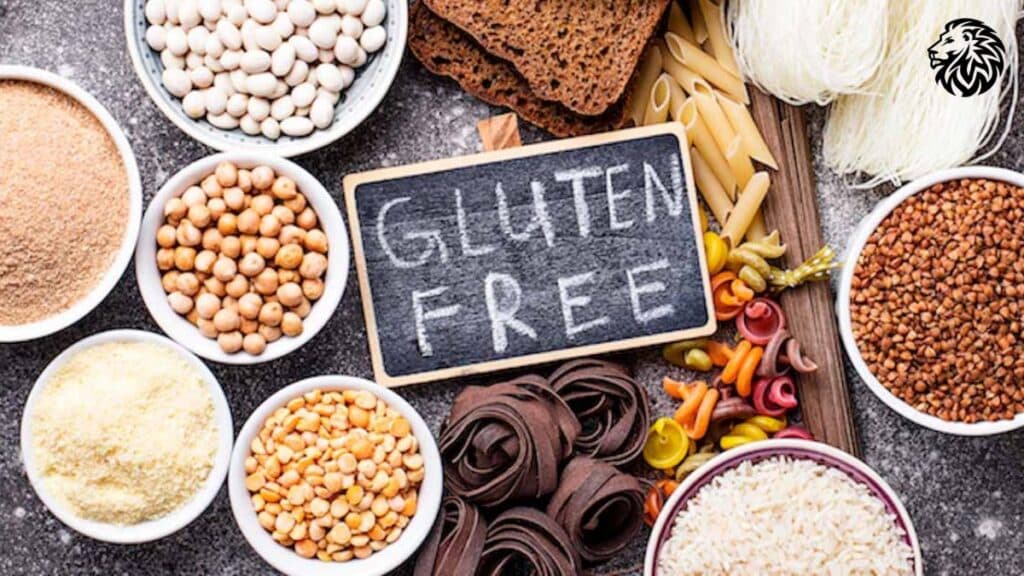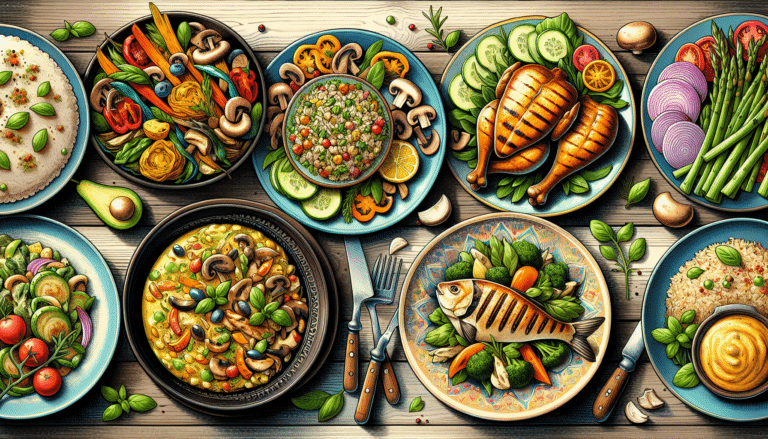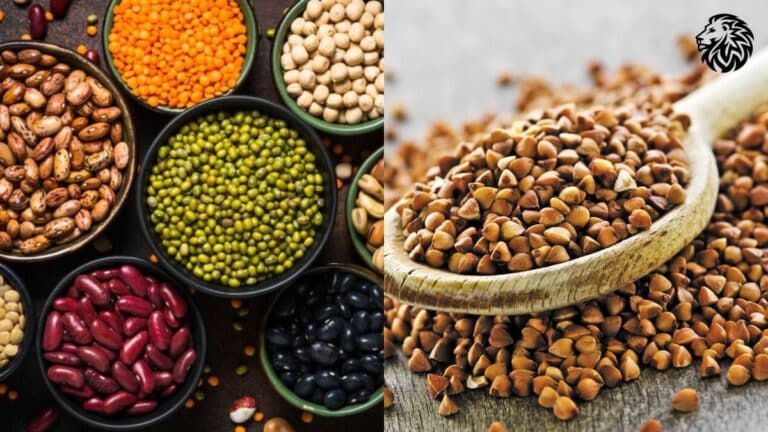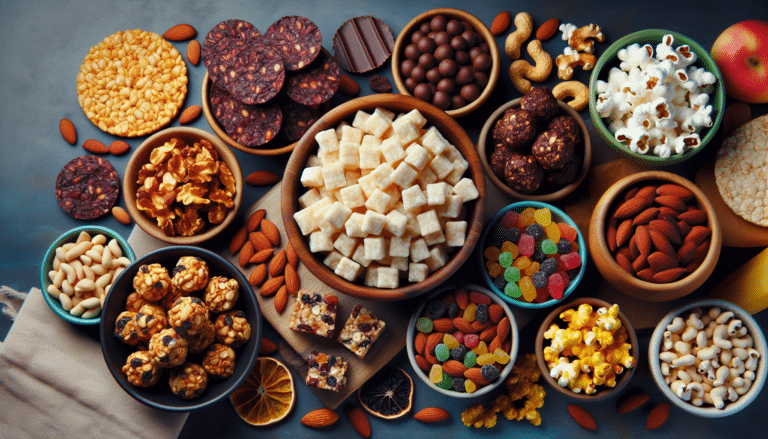Going gluten-free means saying goodbye to the protein gluten found in grains such as wheat, barley, and rye. It’s a must for folks with celiac disease or gluten sensitivity. But it’s also caught on with health-minded individuals who see it as a path to a healthier lifestyle.
The last ten years have seen a big boost in the popularity of gluten-free diets. Market trends indicate a significant increase in the sales of gluten-free products, revealing a rising trend among consumers. This popularity isn’t just among people with celiac disease or gluten sensitivity. Adopting a gluten-free diet has also struck a chord with the general public. Many people now view the diet as a ticket to a healthier lifestyle and a possible route to shedding some pounds.
But amidst all the excitement for gluten-free diets, there’s a bit of a cloud of confusion and debate about their potential for weight loss. This article seeks to cut through the fog by presenting the latest scientific research and practical advice to highlight the role gluten-free diets can play in managing your weight.
Understanding Gluten

Gluten is a naturally occurring protein found in wheat, barley, and rye. It is a composite of two main proteins: gliadin, which gives dough its stickiness, and glutenin, which lends elasticity and chewiness to baked goods. When flour made from these grains is mixed with water, the gluten proteins form a sticky network that has a glue-like consistency. This network helps to trap air, making the dough rise and resulting in bread and baked goods that are light and fluffy. Gluten also provides a satisfying, chewy texture.
Gluten is predominantly found in foods made from wheat, barley, and rye. This includes a vast array of products, such as bread, pasta, cereals, beer, and cakes. It’s also present in many processed foods like sauces, ready meals, and even in some cosmetics and medications. Furthermore, gluten can also be found in foods due to cross-contamination, where foods naturally free from gluten come into contact with gluten-containing foods, typically in manufacturing processes or during food preparation.
The Science behind Gluten-Free Diets

The Reasons People Follow Gluten-Free Diets
Gluten-free diets are primarily recommended for people with specific health conditions:
- Celiac Disease: This is an autoimmune disorder where ingestion of gluten leads to damage in the small intestine. People with celiac disease have an inflammatory response to gluten. This can damage their intestinal lining and lead to various symptoms like abdominal pain, bloating, and malabsorption of nutrients.
- Non-Celiac Gluten Sensitivity: In some individuals, consumption of gluten can lead to symptoms similar to those of celiac disease. These symptoms can including bloating, abdominal pain, and fatigue, but without the associated intestinal damage. The condition is less severe but still requires a gluten-free diet for symptom control.
- Wheat Allergy: Individuals with wheat allergy have an allergic reaction to proteins in wheat. This can include but not limited to gluten. A gluten-free diet is often necessary, although some people may be able to eat gluten from non-wheat sources.
In recent years, gluten-free diets have also become popular among people without these specific conditions. Some adopt them for perceived health benefits, while others believe it can aid in weight loss.
Science Behind Gluten-Free Diets for Weight Loss
The relationship between gluten-free diets and weight loss is complex and not fully understood. It’s important to note that a gluten-free diet is not a low-calorie or low-fat diet. Thus, a gluten-free diet does not automatically lead to weight loss.
However, transitioning to a gluten-free diet often involves a greater focus on whole foods like fruits, vegetables, lean proteins, and gluten-free grains. This can contribute to a healthier diet overall and, thus, potential weight loss.
Conversely, many gluten-free processed foods can be higher in calories, fat, and sugar compared to their gluten-containing counterparts. They can also be lower in fiber, which is essential for maintaining a feeling of fullness and regulating the digestive system.
Current research shows mixed results. Some studies suggest a positive correlation between gluten-free diets and weight loss. While others see no difference or even weight gain due to the high caloric content of many gluten-free foods.
Ultimately, experts agree that successful weight loss is most often achieved through a balanced diet paired with regular exercise. If a gluten-free diet aids in achieving this balance, it can be a useful tool. But it is not a guaranteed or universally effective weight loss solution.
Pros and Cons of Gluten-Free Diets for Weight Loss

Potential Benefits of a Gluten-Free Diet for Weight Loss
- Increased Awareness of Food Choices: Following a gluten-free diet often requires carefully reading food labels and paying attention to what goes into meals. This increased awareness can help individuals make healthier food choices overall, contributing to weight loss.
- Focus on Whole Foods: Gluten-free diets generally emphasize the consumption of naturally gluten-free whole foods like fruits, vegetables, lean proteins, and gluten-free grains. These are nutrient-dense and can promote satiety, aiding weight loss.
- Reduced Consumption of Processed Foods: Many processed foods contain gluten, so following a gluten-free diet can lead to decreased consumption of these often calorie-dense foods. This can potentially reducing overall calorie intake and supporting weight loss.
Possible Drawbacks and Risks of a Gluten-Free Diet for Weight Loss
- Nutritional Deficiencies: Many whole grains that contain gluten are also important sources of fiber, vitamins, and minerals. Unless these nutrients are sought from other foods, their absence can lead to deficiencies.
- Reliance on Processed Gluten-Free Foods: The market is filled with processed gluten-free foods. These foods can be high in sugars, fats, and overall calorie content. Thus, potentially leading to weight gain rather than loss.
- Risk of Unhealthy Relationship with Food: The strictness of a gluten-free diet can sometimes lead to an unhealthy fixation on food and dieting. This can negatively affect mental health and the relationship with food.
- Potential for Increased Grocery Costs: Gluten-free products are typically more expensive than their gluten-containing counterparts. This could lead to higher grocery bills.
- Social and Dining Challenges: Dining out or eating socially can be more challenging on a gluten-free diet due to cross-contamination risks and limited food choices.
As with any diet, it’s important to consider these pros and cons. Also you may want to consider consulting a healthcare provider or dietitian before starting a gluten-free diet for weight loss. They can provide guidance on how to follow the diet in a balanced and nutritious way, minimizing potential risks.
Expert Tips for a Balanced Gluten-Free Diet

Recommendations from Nutritionists and Dietitians
- Diversify Your Diet: Ensure you’re eating a variety of nutrient-rich gluten-free foods. These can include fruits, vegetables, lean proteins, and gluten-free grains like quinoa, rice, and oats.
- Read Labels Carefully: Gluten can be hidden in many food products. Always check labels for any mention of wheat, rye, barley, or other gluten-containing ingredients.
- Be Wary of Cross-Contamination: This is especially important if you’re sensitive or allergic to gluten. Use separate utensils and cookware for gluten-free and gluten-containing foods.
- Don’t Over-rely on Processed Gluten-free Foods: While gluten-free packaged foods can be convenient, many are high in sugars, fats, and calories. Use them sparingly and focus on whole foods instead.
- Supplement If Needed: If you’re having trouble getting all your nutrients from your diet, consider a multivitamin or specific supplements. Always consult with a healthcare provider before starting any supplement regimen.
Gluten-Free Foods and Meal Plans for Weight Loss
- Breakfast: Gluten-free oats topped with fresh fruit and a dollop of Greek yogurt, or scrambled eggs with spinach and gluten-free toast.
- Lunch: A hearty salad with mixed greens, grilled chicken, a variety of vegetables, and a gluten-free dressing, or a quinoa bowl with mixed vegetables and a lean protein.
- Dinner: Grilled fish with a side of roasted vegetables and sweet potatoes, or stir-fried tofu with gluten-free tamari sauce and mixed vegetables served over brown rice.
- Snacks: Fresh fruits, nuts, seeds, yogurt, or gluten-free rice cakes topped with avocado.
- Desserts: Dark chocolate, fresh fruit sorbets, or gluten-free baked goods made with minimal sugars.
Remember, everyone’s nutritional needs and responses to diets are different. It’s always wise to consult with a healthcare provider or dietitian to create a meal plan that fits your personal health goals and dietary requirements.
The Role of Exercise and Lifestyle
Incorporating Exercise and Healthy Habits with a Gluten-Free Diet
While diet plays a crucial role in weight management, it’s just one piece of the puzzle. Incorporating regular physical activity and maintaining healthy lifestyle habits are equally important for effective and sustainable weight loss.
Exercise not only helps burn calories but also improves cardiovascular health, builds muscle mass (which can increase metabolism), and enhances overall mood and well-being. Coupled with a balanced gluten-free diet, regular exercise can help create the caloric deficit necessary for weight loss.
Healthy lifestyle habits such as getting enough sleep, managing stress, and staying hydrated are also vital. Lack of sleep and high stress can disrupt hormonal balance, which can lead to weight gain or make weight loss more difficult. Hydration aids in digestion and can help control appetite, supporting weight management.
Physical Activity and Gluten-Free Diet
- Find an Activity You Enjoy: You’re more likely to stick with an exercise routine if you enjoy the activity. This could be anything from running or cycling to dancing or yoga.
- Mix It Up: Incorporate a mix of cardio, strength training, and flexibility exercises into your routine. This can help prevent boredom, work different muscle groups, and reduce the risk of injury.
- Start Small and Gradually Increase: If you’re new to exercising, start with small, manageable goals – like a 15-minute walk each day – and gradually increase duration or intensity as your fitness improves.
- Schedule Exercise: Just like any other important appointment, schedule your workouts. This can help make exercise a regular part of your routine.
- Listen to Your Body: If you’re feeling fatigued, it might be due to a lack of nutrients, which can sometimes occur on a restrictive diet like a gluten-free diet. In such cases, consider consulting with a healthcare provider or dietitian.
Remember, it’s always a good idea to consult with a healthcare provider before beginning a new exercise program, especially if you have any pre-existing health conditions.
Conclusion
We’ve journeyed through the world of gluten-free diets and how they might play a role in weight loss. We’ve discussed what gluten is, where it’s found, and why some folks decide or need to cut it out. We’ve delved into the science of gluten-free diets and presenting a balanced look at the possible pros and cons for weight loss.
One major takeaway is the value of getting personalized advice from healthcare providers or dietitians before jumping on the gluten-free bandwagon for weight loss. Given the possibility of nutritional gaps and the complexities of a strict diet, it’s important to get expert advice to ensure you’re eating a balanced nutrient-rich diet that meets your needs and goals.
Gluten-free diets can play a part in helping you manage your weight loss. Particularly when they result in eating more whole, nutrient-rich foods and less processed foods. However, they’re not a surefire or universally effective solution for weight loss. Like any diet, success depends on how it’s carried out.
As the science keeps evolving, it’s crucial to stay informed and adaptable. Always keeping a focus on overall health and well-being above all else.







